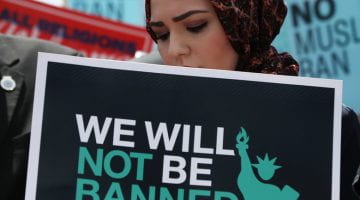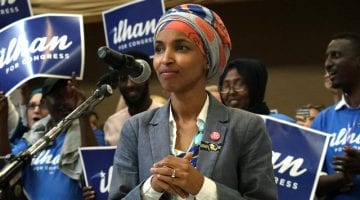About
This international symposium will bring scholars of Islam, international and public affairs, education, race, and law together with practicing journalists and attorneys for a sustained reflection on the conventions and tropes that pervade contemporary public discourse on religion, with focused attention to coverage of Islam and Muslims in the United States and abroad.
In particular, we aim to foster a critical conversation about Countering Violent Extremism (CVE) initiatives, ‘radicalization,’ and journalistic coverage and scholarly debate on so-called religious violence.
We will explore methods and strategies of writing and reporting on these issues that de-center religion as an explanatory framework. Our intention is to cultivate and to publicize modes of public discourse that do not re-inscribe the very tropes that are in most need of critique.

Religion & Politics: Dangerous Logic at the Border
With anti-Muslim rhetoric at the highest levels of the U.S. government, including numerous incontrovertible statements by the President himself, writes conference organizer Elizabeth Shakman Hurd, how could the majority in Trump v. Hawaii find that the ban is not about religion or religious animus?

NPR: Muslims Hope To 'Wake Up' At The Ballot Box This Year
NPR reporter and symposium keynote speaker Leila Fadel filed this piece before the 2018 midterms.
“With Muslims and immigrants used as boogeymen in political rhetoric, Imam Asad Zaman, executive director of the Muslim American Society of Minnesota, said, getting his community to the ballot box is vital.”

Boston Review: The Border President
“The outrage on the left that focuses on religion and race misses the possibility that [Trump v. Hawaii] gets the law right, and the law itself is the problem. It risks diverting attention from the need for checks on presidential power and the realities of politics on the border.”
